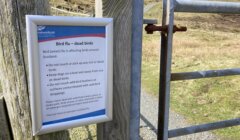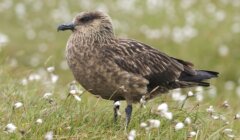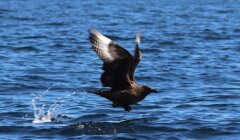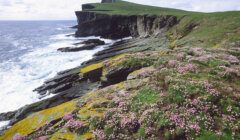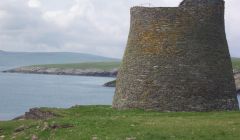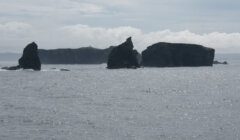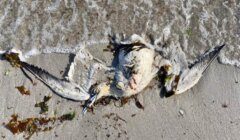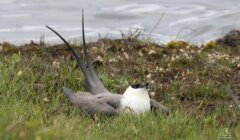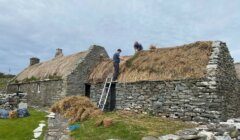Nature / Island nature reserve closed to protect seabirds from avian flu
NOSS Nature Reserve will be closed to public access from Friday onwards to protect seabird populations from avian flu.
The isle of May, in the Firth of Forth, will also be closed from 1 July.
NatureScot will also be advising visitors not to take direct access onto seabird colonies, but to watch the spectacle from the distance, at other national nature reserves (NNR) such as Hermaness, also in Shetland.
The measure by Scotland’s nature agency is the latest in response to growing concern over the spread and impact of the current H5N1 strain of avian flu, particularly in seabird colonies.
The virus is widespread across Scotland, with positive cases recorded in Shetland, Orkney, St Kilda, Lewis and St Abbs.
Due to the nature of the virus and wild birdlife, the numbers of positive cases do not reflect the situation as not all dead birds are tested.
Twenty one different birds collected from Shetland – including arctic tern, common eider, great black backed gull, gannet, great skua – tested positive in the same week recently.
Great skua and gannets have been hardest hit. Sample surveys of colonies show a 64 per cent decline of great skua on St Kilda and 85 per cent at Rousay in Orkney.
Great black-backed gull, Arctic tern, common guillemot and puffin have also tested positive.
The agency’s deputy director of nature and climate change Eileen Stuart said the decision to restrict access to two island NNRs has been taken to limit the spread of the virus and give colonies the best possible chance of survival and recovery by reducing any additional stress.
“The decision to close these reserves has not been taken lightly, but we are increasingly concerned about the devastating impact avian flu is having in Scotland, particularly on our seabird colonies,” she said.
“Our island reserves in particular are a haven for internationally important bird populations.
Become a member of Shetland News
“The situation has been rapidly evolving and deteriorating, and we feel at this time that restricting access to these sites, and reducing it at others, is a precautionary but proportionate approach that gives us the best chance of reducing the spread of the virus and its impact.”
Shetland News started reporting on the spread of avian flu among seabird populations as early as 3 May.
Naturalists have been warning for some time of catastrophic impact the avian flu pandemic is having on local seabird populations.
Become a member of Shetland News
Shetland News is asking its many readers to consider paying for membership to get additional features and services: -
- Remove non-local ads;
- Bookmark posts to read later;
- Exclusive curated weekly newsletter;
- Hide membership messages;
- Comments open for discussion.
If you appreciate what we do and feel strongly about impartial local journalism, then please become a member of Shetland News by either making a single payment, or setting up a monthly, quarterly or yearly subscription.



































